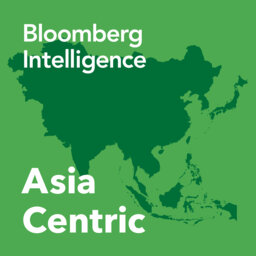Invesco on What US Elections Mean for Asia
The 2024 US election is set to be a rematch between Joe Biden and Donald Trump, setting the stage for a heated several months. So why should investors across Asia start tuning into the election run-up? And is there any hope of salvaging the US-China relationship with either candidate?
David Chao, Global Market Strategist (Asia Pacific) at Invesco, joins co-hosts John Lee and Katia Dmitrieva with his insights on what the US election could mean for Asian markets.
In 1 playlist(s)
Asia Centric by Bloomberg Intelligence
Some of the world's largest and fastest-growing markets, economies and companies are in Asia. Every …Social links
Follow podcast
Recent clips

Hong Kong's Property Market Roars Back to Life
24:27

How AI Created an Unprecedented Memory Chip Crisis
32:47

Is the Global Defense Supercycle Sustainable?
27:23
 Asia Centric by Bloomberg Intelligence
Asia Centric by Bloomberg Intelligence